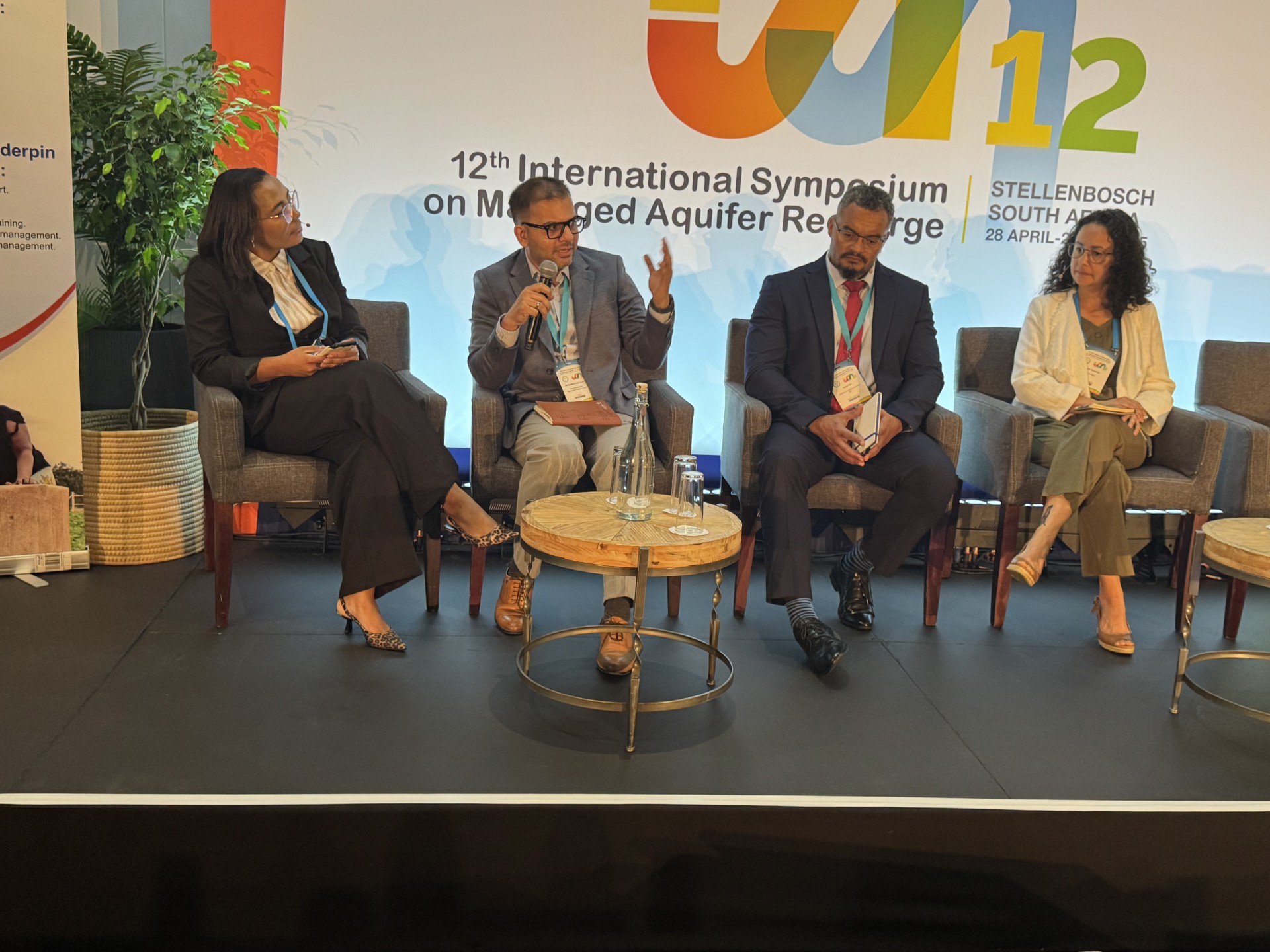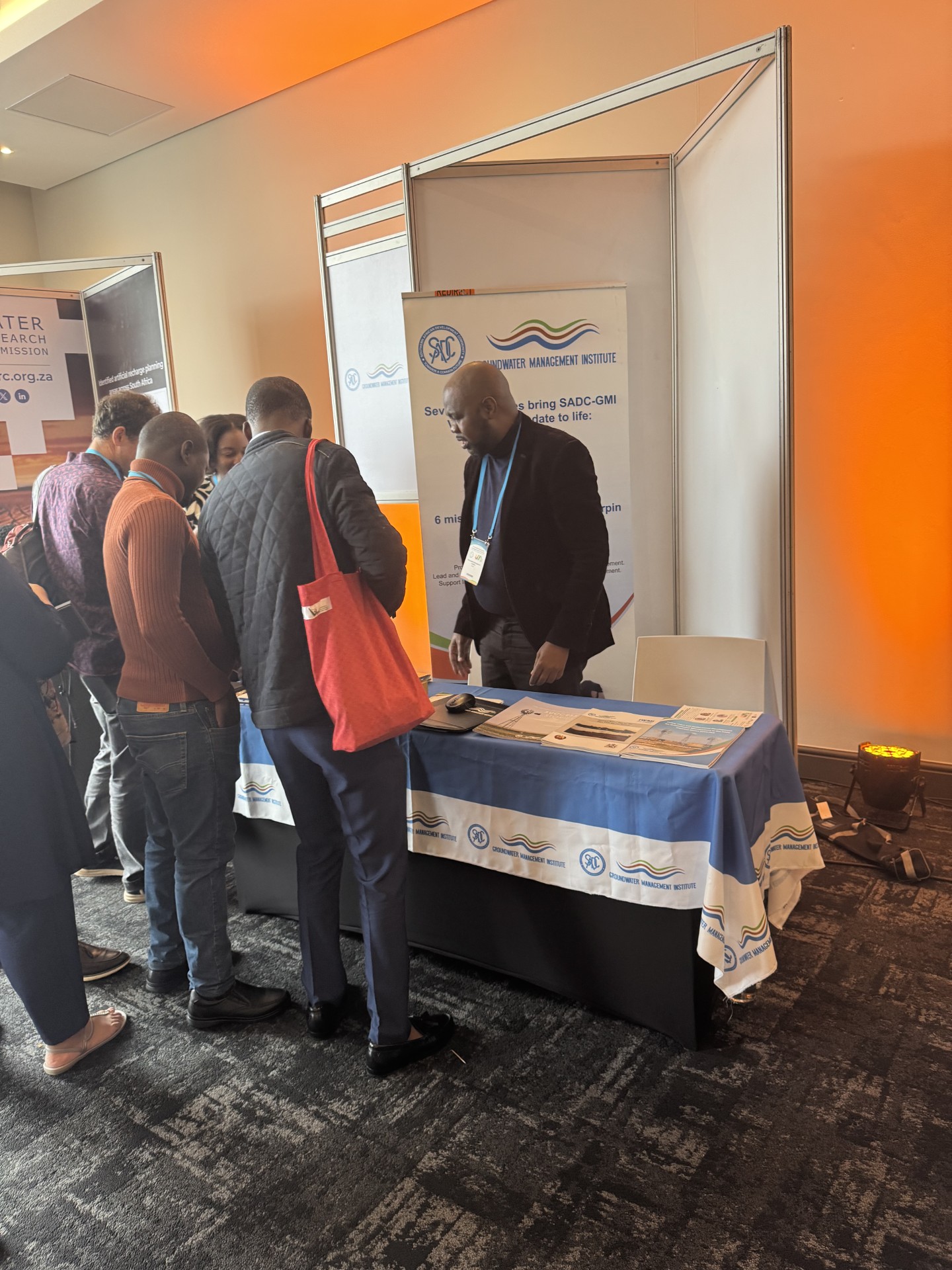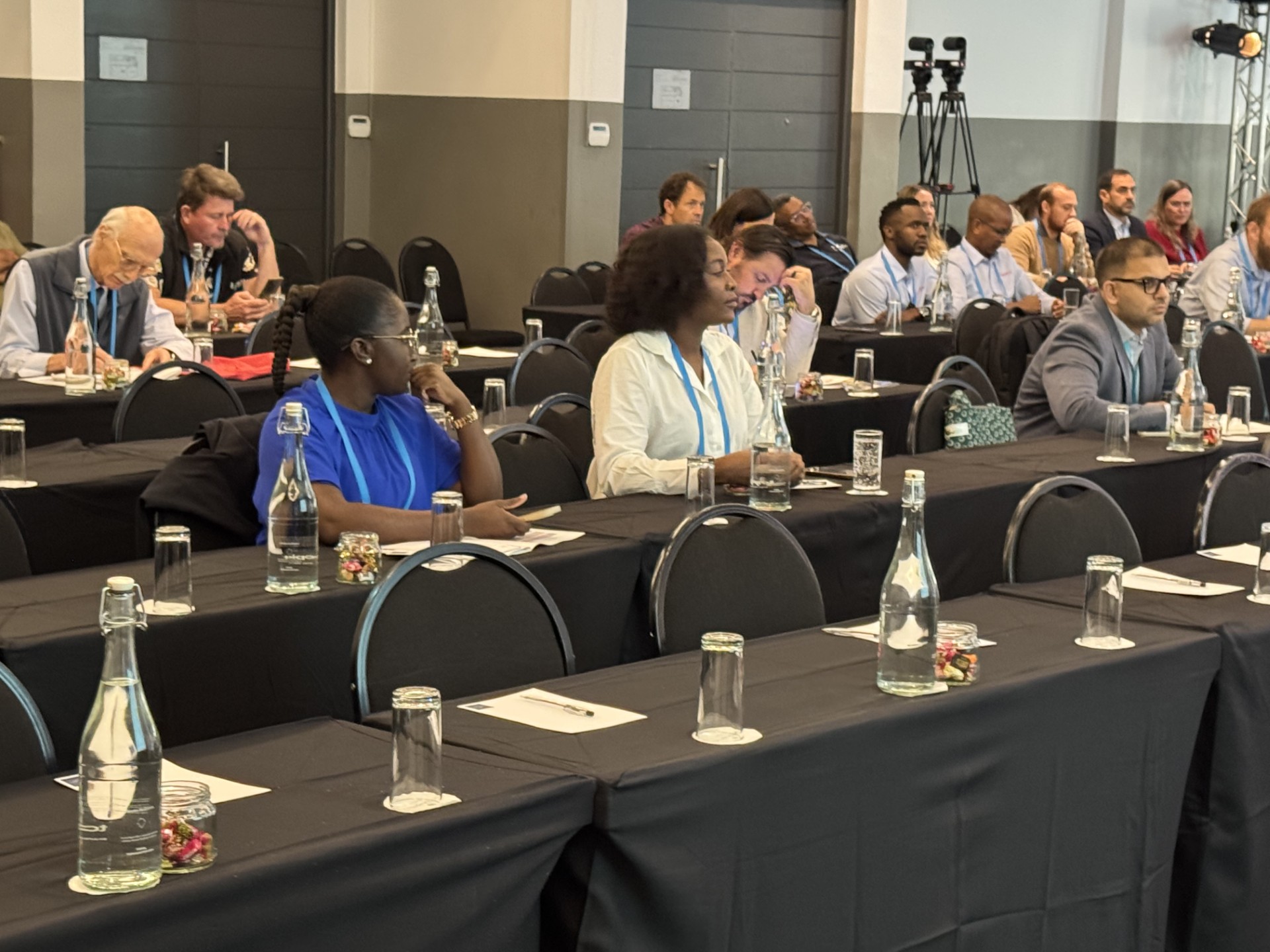SADC-GMI held a highly successful session at the 12th International Symposium on Managed Aquifer Recharge in Stellenbosch, South Africa.
The 12th International Symposium on Managed Aquifer Recharge: A Leap Towards Sustainable Water Management in Africa
The 12th International Symposium on Managed Aquifer Recharge (ISMAR) is the premier global event dedicated to Managed Aquifer Recharge (MAR) research and practice. Held every three to four years, it is organized under the auspices of esteemed organizations, including the International Association of Hydrogeologists (IAH), the American Society of Civil Engineers (ASCE), and UNESCO.
A Landmark Event in Stellenbosch
The 12th edition of ISMAR 12 took place in the picturesque town of Stellenbosch, South Africa, from 28 April to 2 May 2025. The theme, “From Theory to Implementation and Operation,” emphasized the latest research findings, the implementation of MAR sites, and the practical aspects of operating these schemes. This gathering attracted regional and international experts, providing a unique platform for exchanging innovative ideas and knowledge that can elevate MAR practices globally.
Addressing Africa’s Water Challenges
For South Africa and the broader African continent, ISMAR 12 presented a golden opportunity to forge connections that could propel marine robotics (MAR) technology forward. With Africa facing significant challenges, including water scarcity, agriculture, and food insecurity, impacts from climate change and climate variability, and increasing water demand, the symposium underscored MAR as a critical strategy for enhancing groundwater resources. Statistics reveal that over 300 million people in Africa lack access to safe drinking water, highlighting the urgency of implementing sustainable water management practices. As climate change exacerbates rainfall variability, the need for effective Managed Aquifer Recharge (MAR) systems becomes even more pressing.
Insights from the SADC Groundwater Management
The SADC Groundwater Management Institute (SADC-GMI) actively participated in the symposium, convening a two-hour session on MAR from an African perspective. This session highlighted that while MAR has been practiced in Western countries for decades, it remains relatively new in Africa. The continent’s first MAR projects date back to the 1950s in places such as Soukra, Tunisia, and Polokwane, South Africa. However, Africa is rapidly catching up, with increasing awareness of groundwater’s critical role in resilience and development.

Our panelists, comprising regional and international representatives, made a significant contribution to the session, ‘MAR in Africa.’. From L-R: Ms Anna David – SADC-GMI Senior Groundwater Specialist, Dr Mohammed Faiz Alam- Regional Researcher, International Water Management Institute, Delhi, David Farr – Senior Environmental Hydrogeologist – Wellfield Consulting Services – Botswana, and Daniela Benedicto Van Dalen Senior Hydrogeologist and Strategic Partnership Advisor – Acacia Water
The Importance of MAR for Africa
The symposium illuminated several key benefits of MAR for Africa:
- Enhancing Water Security: MAR systems can significantly improve the availability of groundwater, which is vital for drinking, agriculture, and industry.
- Supporting Agriculture and Food Security: By replenishing aquifers, MAR can help sustain agricultural productivity, which is crucial for a continent where over 60% of the population relies on agriculture for their livelihoods.
- Strengthening Climate Resilience: As climate change impacts intensify, MAR can buffer against droughts and water shortages, enhancing community resilience.
- Improving Urban Water Supply: Urban areas, often the most affected by water scarcity, can benefit from MAR systems that augment their water supply.
- Protecting Ecosystems and Reducing Land Degradation: By maintaining groundwater levels, MAR can help protect vital ecosystems and combat land degradation, which affects biodiversity and agricultural productivity.
Conclusion: A Path Forward
The insights and connections made during ISMAR 12 are pivotal for advancing MAR practices in Africa. As the continent grapples with escalating water challenges, implementing MAR systems offers a sustainable solution that can enhance groundwater management and contribute to long-term water security. With the right investments and collaborative efforts, Africa can harness the potential of MAR to create a more resilient and sustainable future for its people.

SADC-GMI proudly showcased its innovative products and distributed promotional materials at the exhibition booth. This initiative was instrumental in enhancing brand awareness for SADC-GMI, positioning it as the Centre of Excellence in Sustainable Groundwater Management.





